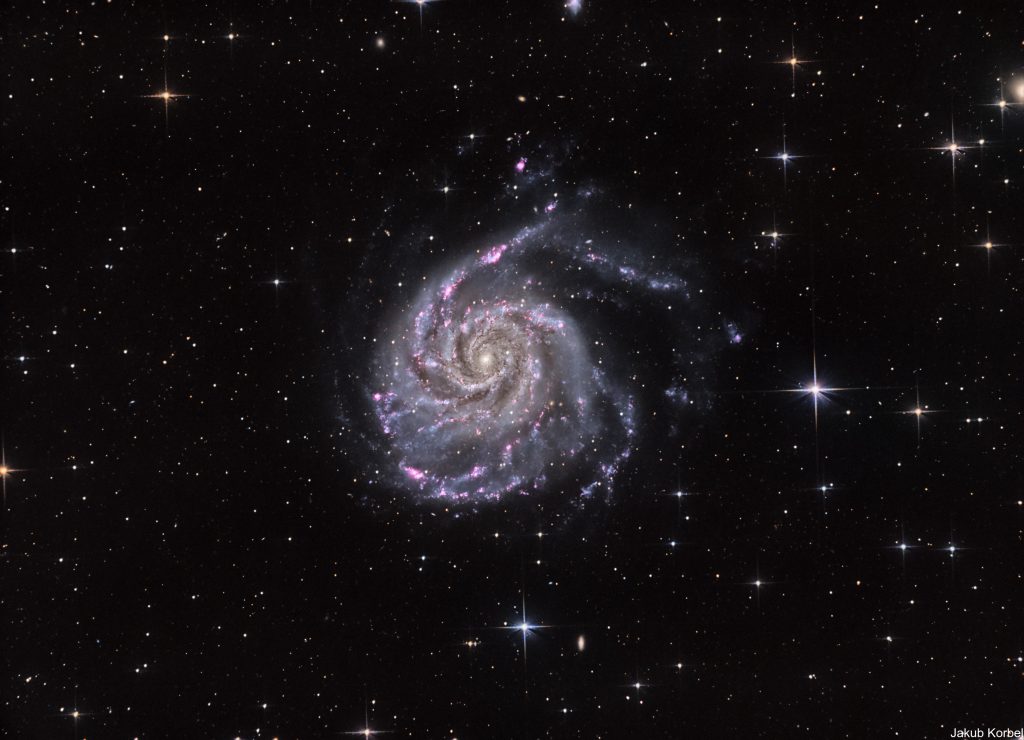Pinwheel Galaxy is similar to our own homeland Milky Way Galaxy. It has 170 000 light years in diameter (it takes 170 000 years till the light from one side reaches the other) It’s 21 million light years from the Solar system and is located in the constellation Ursa Major (Big Dipper or Great Bear).
This galaxy is characterized by a high population of H II regions and therefore I adjusted the image acquisition in a way to highlight it. In total, I used four nights to capture this image. The Moon was not bothering and surprisingly, the weather was excellent in the first half of May. The first night I used it just for the luminance channel, the second and third one for RGB channels, and finally the last one for narrow band image of hydrogen alpha. Ha channel was merged with the R channel and therefore the intensity of H II regions was increased. It’s probably my longest total integration time of any galaxy and it was worth it. See for yourself:

| Telescope: | Newton 254/1000 mm |
| Aperture: | 254 mm |
| Focal length: | 1000 mm |
| Mount | Gemini G53f |
| Autoguiding | ZWO 174MM, TS 60/240 mm |
| Camera: | Moravian instruments G2 8300M @-40C |
| Corrector: | Baader MPCC |
| Filters: | Baader LRGB and Ha |
| Exposure: | 42xL, 300 s, 26xHa, 300s bin 1×1, 27xRGB 200 s, bin 2×2 |
| Date: | 2016-05-06 |
